




 |
   |
 |
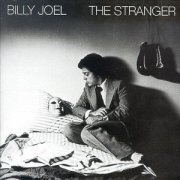 |
The Stranger (1977, 42.02) ***/½Movin' Out (Anthony's Song)The Stranger Just the Way You Are Scenes From an Italian Restaurant Vienna Only the Good Die Young She's Always a Woman Get it Right the First Time Everybody Has a Dream |
Current availability:
Mellotron used:
It's funny to think that, once upon a time, Billy Joel wasn't actually a byword for appallingly cheesy pop/AOR along the lines of the horrid Uptown Girl or the truly offensive We Didn't Start The Fire; no, Billy - just gleefully fanned the flames. The Stranger was his fifth album and is, by and large, well-crafted singer-songwriter stuff; Joel certainly knows how to put a song together, even the rather cringeworthy Just The Way You Are has better lyrics than I'd remembered. I've surprised myself by not loathing his early work, although I can't exactly see myself playing it on a regular basis.
On what appears to be the only Mellotron track of his career, Joel (presumably) plays a Mellotron flute melody on She's Always A Woman, but it's fair to say that it doesn't especially make the track; I suspect a studio machine that he used on a whim. So; don't go out of your way (big surprise there, then), but a lot less nasty than his later work. Incidentally, extra special low marks for rhyming 'Garden of Eden' with 'bleedin''. Or is it a joke?
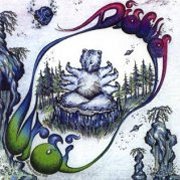 |
Discus Ursi (1998, 65.17) ***/TTT |
|
| Discus Ursi's Prelude King of Gold Golden Discharge The Wish The Transmutation The Oracle The Dive Golden Riverbank Time Fracture |
Pegasus The Goddess and the Gold The Desert The Goddess and the Queen The Queens Father The Desert The Last Minstrel of Marble Discus Ursi's Rhapsody |
|
Current availability:
Mellotron used:
Guitarist Björn Johansson is a compatriot of Swedish progster Pär Lindh, the pair having recorded a couple of couple of co-credited albums together, while Johansson played on the Pär Lindh Project's first album. 1998's Discus Ursi is credited to Johansson alone; Lindh's stamp is all over the record in the form of his lush keyboard contributions, although Johansson's compositional style is a long way from Lindh's frequently Emersonian excesses. Saying that, chunks of Discus Ursi are distinctly neo-proggish, though without the pseudo-'commercial' edge that ruins so much second- and third-wave prog. The album's chief problem is a lack of truly memorable material, several lengthy tracks padded out with guitar solos or noodling, failing to sound like the scored symphonic prog that it aims for. There are no end of good moments, but few, if any, really good whole pieces.
Lindh plays his ex-Anekdoten MkV Mellotron on the album, with strings and choir scattered across all but the album's brief intro piece, plus a flute melody on Pegasus. Unfortunately, although two of the longer (although not the longest) tracks are split into several parts, I've no way of knowing where one part ends and another begins, so the tracklisting above makes it look like there's rather less Mellotron on the album than is actually the case. I have to say, too, it really hasn't been recorded very well; the strings don't exactly leap out at you, while the choirs are very murky indeed, rather lessening their effect. As on Lindh's own albums, the Mellotron use here is rarely jaw-dropping, while the recording quality spoils it when it does appear, although it's still good to hear it used this much. This would've got a higher 'T' rating had Mellotron had actually been recorded in the same building as the rest of the instruments.
See: Pär Lindh Project | Pär Lindh & Björn Johansson
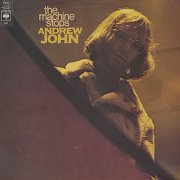 |
The Machine Stops (1972, 37.53) ***/T |
|
| The Only Friend I Own When I Wake Up Old Compton Street Blues Time Has Told Me Famous Blue Raincoat Flying South Her Father Didn't Like Me Seasons Change |
The Great Kansas Hymn Why Not Admit Another Day |
|
Current availability:
Mellotron used:
It wouldn't be strictly accurate to refer to Andrew John (Huddleston) as a 'singer/songwriter', as all but one of the songs on his sole album, 1972's The Machine Stops, are his interpretations of other people's material. No shame there; plenty of more familiar names have done the same. Once upon a time, hardly anyone wrote their own material; that's how Tin Pan Alley started, with professional songwriters servicing musicians (so to speak). Enough history that you already know; John delivers some very listenable versions of songs by Nick Drake (Time Has Told Me; at this point, Drake was far from a household name), Leonard Cohen (Famous Blue Raincoat, rather lacking the gravitas of the original), Al Stewart (the excellent Old Compton Street Blues) and Roy Harper (Another Day), amongst others. His one original, Why Not Admit, is a perfectly good song with a slight country feel, certainly no worse than many similar.
John plays Mellotron himself, with cello lines on Tony Bolton's When I Wake Up (that could almost be real) and Gerry Rafferty's Her Father Didn't Like Me, although I do wonder whether he couldn't find/afford a cellist, so just substituted the studio Mellotron. Incidentally, John is married to Danish artist/musician Lissa Sørensen, with whom he still plays and releases the occasional album.
Elton John (UK) see: |
 |
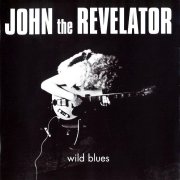 |
Wild Blues (1971, 33.20/57.10) ***½/0 (½) |
|
| John the Revelator I Can't Stop Lovin' You Worried Dreams Charlie's Drive Inn Talk to Me, Baby Personal Manager Wild Blues Bleeding Heart No Woman |
Homework [CD adds: Yeah Rockin' Squirrel One Track Mind I Can't Stop Lovin? You (live) Little Red Rooster (demo) Worried Dreams (instr. demo)] |
|
Current availability:
Mellotron used:
John the Revelator (named for the Son House track) were a Dutch blues outfit from the late '60s, led by bassist/vocalist Tom Huissen, heavily inspired by Peter Green's Fleetwood Mac. Their first album (and last for a decade), 1971's Wild Blues, is pretty much a carbon-copy of Green's mob over the North Sea, although the band's two-piece brass section gives them a level of sonic individuality.
Good though the album is, the only recordings of relevance to this site date from May '71, when the band went into the studio (Phonogram's famed facility at Hilversum) to record a single, strangely electing to label the sides 'B' and 'C', for reasons known best to themselves. Rockin' Squirrel is pretty much what you'd expect, while the flip, One Track Mind, is an excellent slow blues, but, for reasons now lost in the mists of time, the label elected not to release it. Their regular producer, Tony Vos, not being available, they were assigned Hans van Hemert, who normally worked at the commercial coalface and didn't understand where the Revelator chaps were coming from at all. As a result, he attempted to 'commercialise' the tracks with some up-to-the-minute technology, viz an ARP (probably a 2600) on Rockin' Squirrel (and real flute from one of the saxophonists) and what must've been the studio's notorious M300 Mellotron on One Track Mind, with a background string part that, frankly, adds little to the track, although it's preferable to the real strings that the Mac would probably have used.
The band split in '73, Huissen going on to play in Hellhound for several years before reforming John the Revelator towards the end of the decade, still playing today. The album, by now a serious collector's item, was finally reissued in 2003, adding a raft of bonus tracks, including, of course, the aborted single, giving us the opportunity to hear one of the era's lesser Mellotron tracks.
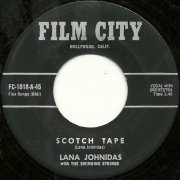 |
7" (1964?) **/TTT½ Scotch Tape Close to You |
Current availability:
Chamberlin used:
Released on Sandy Stanton's Film City imprint, Lana Johnidas' Scotch Tape c/w Close To You is apparently less likely to be your classic 'song-poem' effort (a professional vocalist singing amateur lyrics sent in by hopefuls, who paid for the end result) than an actual hopeful, presumably Ms. Johnidas herself, singing over a backing track. Is it bad? Of course it's bad! In fact, it's bloody awful! The 'A' is actually what it appears to be, a paean to, er, Scotch Tape: "Scotch Tape, ooh, I love ya". You get the idea. Whoever decided to shift the key up a semitone at the forty-five-second mark was a genius, too.
The musician(s) involved can only be guessed at, of course, but it seems likely that the entire backing was provided by the semi-legendary Rodd Keith, with upfront Chamberlin, er, something—electric guitar?— strings and flutes on the 'A', complete with 'guitar' solo, with more of those guitars, plus strings and vibes on the flip. This has turned up on song-poem appreciation blogs (where do you think I heard it?) for the perverts out there who actually like this stuff. Yes, you.
See: Rodd Keith
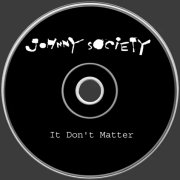 |
It Don't Matter (1997, 42.34) ***½/TT½ |
|
| Loving the Witch I Can't Get High The Other Side of You You Won't See Me Tomorrow Wet Walls The Bucket Breaks I Need it to See My Savior |
Kicking the Chair I'm Sorry It Don't Matter Fuzzy Slipper |
|
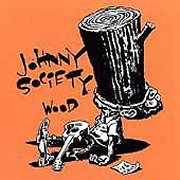 |
Wood (1998, 34.43) ***/TTTT |
|
| Everyday Falling Circles Wood Weigh it Down I Don't Know Why Jenny Says Sing (Soul) Invite Me |
Crawling Under My Skin Undecided Breakin' Me Writers |
|
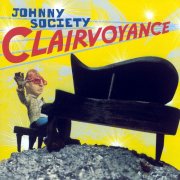 |
Clairvoyance (2000, 49.29) ***/T½ |
|
| Blue Plastic Bag Chinese Torture Red Light Hard to Care One Foot Slips The Sky Figure it Out Mexican Sunset |
Don't Die on Me At the Top of the Charts Leaves Juggling Monkeys Mice Angel Help Me Down |
|
Current availability:
Mellotrons used:
Johnny Society were an indie-end-of-powerpop outfit, I suppose, with links to several other Mellotron-using acts, not least The Hand, Blueberry and Chris Whitley. Their debut, 1997's strangely sleeve art-free It Don't Matter, is an album of wild eclecticism, veering between the (relatively) mainstream powerpop of opener Loving The Witch, the pure 1968 vibes of I Can't Get High, the electro-punk of The Other Side Of You, the odd, propulsive Wet Walls... The end result, while slightly incohesive, is thrilling in its variety, something from which many of their contemporaries could learn. Chris Rael plays clearly very real Mellotron, with skronky cellos on Loving The Witch and It Don't Matter and squawking flutes on The Bucket Breaks and I Need It To See.
The following year's Wood is equally eclectic, if a little less appealing, probably at its best on opener Everyday, Jenny Says Sing and Crawling Under My Skin. This one's a real Mellotron-fest, Rael, Jan Kotik and Blueberry's Kenny Siegal all playing it, with mad flutes and strings on Everyday, a skronky, pitchbent something on Falling, flutes, cellos and strings on Circles and Crawling Under My Skin, cellos on the title track, strings, cellos and chordal flutes on Jenny Says Sing and closer Writers and distant flutes and sound FX on (Soul) Invite Me. 2000's Clairvoyance is possibly at its best on One Foot Slips, the sitar-driven Mexican Sunset and Angel, but too many of its tracks err on the indie side, dragging the album down somewhat. Brian Geltner and Siegal play Mellotron, with fragile string and cello lines on Hard To Care, chordal flutes on Leaves and flutes and strings on Juggling Monkeys. There's nothing Mellotronic on their follow-up, 2003's Life Behind The 21st Century Wall, while the credited Mellotron on 2005's Coming to Get You turns out to be sampled.
See: Samples etc. | Blueberry
 |
If Not Now Then When? (2012, 36.26) ***½/½ |
|
| Hello Sunshine Morning Blues Eden Red Rooster Blue The Turning Rally Don't Reach Too Far Whip Poor Will |
Willow The Long Way Round |
|
Current availability:
Chamberlin used:
Ethan Johns, son of legendary producer Glyn, is a rated producer (Ryan Adams, Kaiser Chiefs, Crosby, Stills & Nash) and musician in his own right, with a credits list as long as your arm. 2012's If Not Now Then When? is his solo debut, released initially only on vinyl, an Americana-infused album with an utterly timeless feel about it; this could just as easily have been made in 1973. Top tracks? It's more about the overall effect than individual highlights, but Morning Blues, the raucous Don't Reach Too Far and Whip Poor Will (ho ho) stand out.
Johns is credited with Chamberlin on The Turning, although the only possibility is the scratchy background noise on the sparse piano ballad, which could just possibly be the sound of someone messing about with the machine's tape-heads. Not exactly 'standard' use, then, assuming I'm right. Anyway, the album's dubious tape-replay content isn't why you should make the effort to hear this; not perfect, but well worth hearing.
See: Paul McCartney
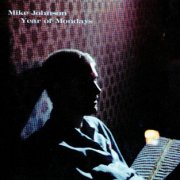 |
Year of Mondays (1996, 51.43) ***½/T |
|
| Where am I? One Way Out Way it Will Be/Too Far Another Side Circle Eclipse Left in the Dark Hold the Reins |
Say It's So Overdrive |
|
Current availability:
Mellotron used:
Mike Johnson replaced Lou Barlow (later of Sebadoh) in Dinosaur Jr and has been making concurrent solo albums since 1994. '96's Year of Mondays is his second, mixing a careworn Americana with bursts of Neil Youngesque electric fury, notably on Say It's So and the lengthy, jammed-out Overdrive, although it's safe to say there are no bad tracks on the album, which makes a nice change.
Johnson plays Mellotron (Mascis'?) on Circle, with a string part running throughout the song, although that's it on the Mellotron front. Year of Mondays is a good, if not great album, likely to appeal to Americana and dinosaur Jr fans, although I wouldn't go too far out of your way for its Mellotron use.
See: Dinosaur Jr
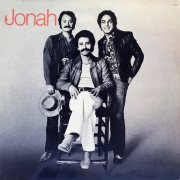 |
Jonah (1974, 39.10) **½/T |
|
| Sweet Sweet Music Waitin' for the Change Lil Feel it It's Always Dark Before the Dawn Comin' to Ya The Fool Picnic |
Commendation to You Jumpin' |
|
Current availability:
Mellotron used:
Despite hailing from New York's Staten Island, one-offs Jonah had a breezy, West Coast feel to their mid-'70s pop/rock, more Doobies than Lou. Produced by the Terry Cashman/Tommy West production team, Jonah were probably lucky not to end up on the duo's rip-off Lifesong label, although their über-mainstream sound would've fitted the label's remit perfectly (Crack the Sky excepted, natch). Are there any better moments on Jonah? Comin' To Ya at least features a decent guitar solo, while closer Jumpin' is about the liveliest thing here, but it's seriously slim pickings, folks.
Tommy West plays Mellotron on one track, the rather insipid Lil, with a perfectly acceptable strings part, quite distinct from the real strings on Waitin' For The Change and elsewhere. This has never been reissued, nor, I'd imagine, is it likely to be. Unless it's top-notch (which this isn't), this kind of mainstream '70s pop has never come back into fashion, nor is it likely to any time soon.
 |
"Guigui" (1978, 39.04) **/½ |
|
| My Woman is Gone La Famille Paty Paty En V'la du Slow en V'la Chanson pour les Gens Qui Sont Loin Un Chausson Aux Pommes La Drogue M'a Mis la Main d'ssus, J'Suis Foutu Guigui |
Rose La Porte de Vanves Clodo Clodo Golden Gate C'est une Idée en l'Air |
|
Current availability:
Mellotron used:
Michel Jonasz (French, of Hungarian parentage) began his career in the '60s, but only became successful in his own right in the mid-'70s. 1978's "Guigui" starts off as if it's going to be a typical soul/pop album (Gallic division), quickly shifting into other styles, including chanson (En V'La Du Slow En V'La, the title track) and La Drogue M'a Mis La Main D'ssus, J'Suis Foutu's good old-fashioned rock'n'roll. It's slightly unfair to judge this album by modern, non-French standards; it was made to order, after a fashion and does the job it set out to do perfectly well.
Georges Rodi and Michel Coeuriot both play Mellotron, with a striking flute part on La Famille and background, er, something Mellotronic (string section? Brass?) on En V'La Du Slow En V'La; hardly anything you can't live without, to be honest. To reiterate, while it might be unfair to judge this album by my standards, it's difficult not to and my standards say it's a bit of a dud, with one so-so Mellotron track. Maybe not, then.
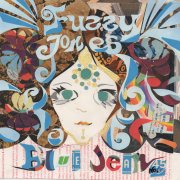 |
7" (2017) ***/T½ Blue Jean (No. 45) Perfume |
Current availability:
Mellotron used:
Leeds-based Fuzzy Jones (nothing to do with the reggae dude) describes her music as, "A tea party with Joni Mitchell and David Bowie, where Burt Bacharach occasionally pops by for a coffee", which sounds about right, going by 2017's Blue Jean (No. 45) 7". It has a pre-psych '60s vibe about it, which fits in with the ATA label's ethos, both sides relying on Jones' beautiful voice and plangent melodies, Perfume being a little more downbeat than Blue Jean.
ATA's Neil Innes (not that one!) plays his own M400, with background strings on the 'A' and a string melody on the flip. I believe hard copies are still available through her Bandcamp page, as is, of course, the download.
 |
Mae'r Olwyn Yn Troi (1974, 34.03) ***/T½ |
|
| Glyndwr Pam Yr Wyt Ti'n Wylo Wylo? O Dyma Fore Dan y Dwr Roedd Gen i Dy Dyddiau a Fu Tra Bo Dau Nos Ddu |
Can y Bugail Aderyn Pur Mynd Yn Ol i'r Dre |
|
Current availability:
Mellotron used:
It seems Heather Jones isn't a born Welsh speaker, but learned it as a second language, opting to conduct her career in Welsh. 1974's Mae'r Olwyn Yn Troi (The Wheel Turns) is a decent enough folk/pop album of its era, including a handful of rockier numbers (notably Roedd Gen I Dy, Nos Ddu and closer Mynd Yn Ol I'r Dre), although perfectly pleasant balladry such as Pam Yr Wyt Ti'n Wylo Wylo?, the Dylanish Dan Y Dwr and Can Y Bugail are more the order of the day.
Gary Rickard plays credited Mellotron (most likely Rockfield Studio's M400), with orchestralalike strings all over the beautiful Pam Yr Wyt Ti'n Wylo Wylo? and Tra Bo Dau, both to reasonable effect. Her most recent album, 2006's Enaid, credits ex-Fairport Conventioneer (now sadly late) Martin "Maartin" Allcock with Mellotron, but I doubt whether it's any more real than his own, contemporaneous use.
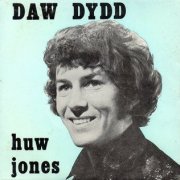 |
Daw Dydd (1971, 13.47) ***/T½Daw Dydd y Bydd Mawr y Rhai BychainBle'r Aeth yr Haul Adfail Paid Anghofio |
Current availability:
Mellotron used:
Huw Jones is a well-known Welsh broadcaster, whose musical career covered a few years between the late '60s and early '70s, Jones ending up as chief executive of Welsh-language TV channel S4C. 1971's Daw Dydd EP was one of his last releases, consisting of three terribly mainstream efforts and one rock number, Adfail, decent enough, if very much of its time.
An unknown musician plays (presumably) Rockfield's MkII Mellotron, with background strings on Daw Dydd Y Bydd Mawr Y Rhai Bychain, in full 'orchestral replacement' mode and brass on Adfail, although the strings on Paid Anghofio are real. Fittingly, this came out on Jones' Welsh-language label Sain, responsible for a good few Welsh Mellotron releases.
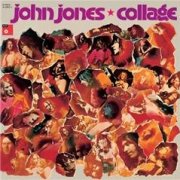 |
Collage (1971, 34.33) ***/TT |
|
| Oh, What a Pity That's Alright By Me Hey Girl Man of 21 Working Anthem Fade Away Smiling Eyes |
Feeling for Today Live in 2 |
|
Current availability:
Mellotron used:
John (Evan-) Jones was one half of the sibling partnership that would go on to form (and name) Jonesy, with his brother Trevor, 1971's Collage appearing a few months earlier. By and large, it's an introspective singer-songwriter album, typified by material such as opener Oh, What A Pity, Hey Girl and Fade Away, although the raucous Working and the mock-jaunty Smiling Eyes buck the prevailing trend.
Jamie Kaleth plays Mellotron, as he would with Jonesy, with background strings on the gentle Man Of 21 and more upfront ones on Anthem and Smiling Eyes, all in classic 'strings on the ballads' mode. Passable enough, but very 1971. Stick with Jonesy, I'd say.
See: Jonesy
 |
Not Too Late (2007, 45.23) ***/T |
|
| Wish I Could Sinkin' Soon The Sun Doesn't Like You Until the End Not My Friend Thinking About You Broken My Dear Country |
Wake Me Up Be My Somebody Little Room Rosie's Lullaby Not Too Late |
|
Current availability:
Mellotron/Chamberlin used:
There can't be (m)any readers of this site who haven't run into (Geethali) Norah Jones (Shankar) somewhere along the line; she's become pretty ubiquitous the last few years, hardly ever off the telly, it seems. You'll all know that she's the illegitimate (what an appalling concept) daughter of Ravi Shankar, from his '70s wild years, so it's hardly surprising that she's so prodigiously talented, whether or not you actually like what she does. Personally, I find her music well on the wrong side of the 'bland/not bland' divide, which is probably why it's so popular, but what do I know? Most of my favourite artists struggle to sell any records at all, apart from, er, Led Zeppelin and, er, a few others. Anyway, the album combines various facets of her style, with mainstream balladry (Wish I Could, the title track), the jazz that she's known for (Sinkin' Soon) and even country (Wake Me Up).
On the tape-replay front, Paul Bryan plays a nice Chamberlin string line on The Sun Doesn't Like You, complete with woozy pitchbend, while Norah provides Mellotron strings on the title track, subdued enough that you're not quite sure whether they're Mellotron or not. Overall, this is only going to appeal to those with fairly mainstream tastes, I'd say, although if you appreciate great voices, regardless of musical style, you may well go for it. Passable tape-replay, but nothing outstanding.
See: Paul Bryan
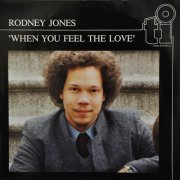 |
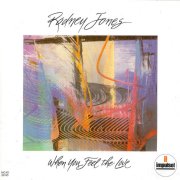 |
When You Feel the Love (1981, 47.50) ***/TThe GiftWhen You Feel the Love Gaze The Joy of Now I'll Always Be With You Just Because Another Bag Song for Jean |
Current availability:
Chamberlin used:
Jazz guitarist Rodney Jones was still in his early twenties when he recorded his third album, 1981's When You Feel the Love, at its best (in my humble opinion) when he steers clear of the era's soft soul/jazz sound (think: George Benson when he shut up and played his guitar), making Another Bag's trad moves possibly the best thing here. The playing is, of course, utterly exemplary, particularly impressive on his solos on Just Because and closer Song For Jean.
Fred Lipsius and Kenny Kirkland both play Chamberlin, with chordal flutes (and background voices?) on opener The Gift, distant strings on the title track and the faintest of background strings at the end of Gaze and throughout The Joy Of Now, although that would seem to be it. Instrumental smooth jazz sound like your bag? Go for it, but really not worth it for the tape-replay.
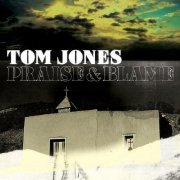 |
Praise & Blame (2010, 38.07) ****/½ |
|
| What Good am I? Lord Help Did Trouble Me Strange Things Burning Hell If I Give My Soul Don't Knock Nobody's Fault But Mine |
Didn't it Rain Ain't No Grave Run on |
|
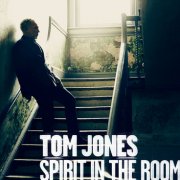 |
Spirit in the Room (2012, 37.31) ***½/T |
|
| Tower of Song (I Want to) Come Home Hit or Miss Love and Blessings Soul of a Man Bad as Me Dimming of the Day Traveling Shoes |
All Blues Hail Mary Charlie Darwin |
|
 |
Long Lost Suitcase (2015, 42.15) ***½/T |
|
| Opportunity to Cry Honey, Honey Take My Love (I Want to Give it) Bring it on Home Everybody Loves a Train Elvis Presley Blues He Was a Friend of Mine Factory Girl |
I Wish You Would 'Til My Back Ain't Got No Bone Why Don't You Love Me Like You Used to Do? Tomorrow Night Raise a Ruckus |
|
Current availability:
Mellotrons/Chamberlins used:
Betcha never expected to see me review anything by 'Jones the voice', eh? Nor me, friends, nor me... Tom Jones has spent so long as a parody of himself, it's easy to forget that he's a brilliant singer, earning him his 'British Elvis' sobriquet, unfortunately including his decades in the Light Entertainment graveyard, despite occasional forays into contemporary pop (notably his 1988 duet on Prince's Kiss with The Art of Noise). After 2008's 24 Hours, Jones completes his rehabilitation with 2010's Praise & Blame, where he 'does a Johnny', tackling carefully-chosen material with the verve of the fabulous Rick Rubin-helmed Johnny Cash American Recordings series.
So what do we get? A haunted, ethereal take on a late-period Dylan number from Oh Mercy, What Good Am I? and a blistering version of Jessie Mae Hemphill's Lord Help, while John Lee Hooker's Burning Hell just rocks. Nobody's Fault But Mine goes back to its 'trad.arr.' origins, neatly bypassing Led Zep's 'Page/Plant' version, the rest of the material largely going either the 'ethereal' or the 'rockabilly' routes. Producer Ethan Johns plays Mellotron on Did Trouble Me, although the only thing it even might be is oboes, double-tracking the credited harmonium. I originally thought it might be the background strings on Ain't No Grave (a second Zeppelin quote, using the same source as their In My Time Of Dying), although those could, frankly, have been produced by almost anything.
Two years on, Jones continues to 'do a Johnny' on 2012's Spirit in the Room, although the end result, while still very good, doesn't seem to quite match its predecessor. Shock value worn off? Too one-paced? Dunno, but it didn't grab me in quite the same way. Saying that, top tracks include the mutant rockabilly of Love And Blessings, the unsettling Soul Of A Man and excellent bonus track Just Dropped In (as in Just Dropped In (To See What Condition My Condition Was In)), although all pale in comparison with his take on the incomparable Richard Thompson's beautiful Dimming Of The Day. Producer Ethan Johns plays Chamberlin on Bad As Me, with what sound like sleazy brass and woodwind parts, but we're hardly talking essential use here.
What appears to be the last in a trilogy, 2015's Long Lost Suitcase, is every bit as good as its immediate predecessor, highlights including Bring It On Home (Zeppelin again!), the ripping guitar solo on Everybody Loves A Train, Elvis Presley Blues (just Jones and a heavily-tremoloed guitar) and the stomping blues-rock of I Wish You Would, amongst others. Johns plays Chamby clarinet and Mellotron strings on Tomorrow Night. Real? Very hard to say, but, for once, I'm giving these the benefit of the doubt until/if I should find out more.
All in all, if you have any interest in rock's roots, you stand a decent chance of enjoying all these albums, possibly helped by their short vinyl length (look! Under forty minutes!), giving them no chance to wear out their welcomes. I've always had a sneaking respect for Jones, despite the knicker-throwing years, so I'm extremely happy to hear him produce something of genuine worth, even if its tape-replay input is low-to-nonexistent. Hey, at least they're credited, giving me the opportunity to review these excellent albums.
 |
No Alternative (1972, 43.21) ***½/TTTTNo AlternativeHeaven Mind of the Century 1958 Pollution Ricochet |
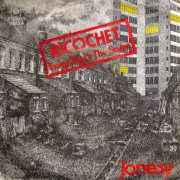 |
7" (1973) ***½/TTT Ricochet Every Day's the Same |
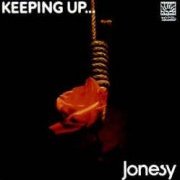 |
Keeping Up... (1973, 40.13) ****/TTTTMasqueradeSunset and Evening Star Preview Questions and Answers Critique (With Exceptions) Duet Song Children |
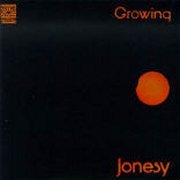 |
Growing (1973, 39.03) ***½/T½Can You Get That TogetherWaltz for Yesterday Know Who Your Friends Are Growing Hard Road Jonesy |
 |
Sudden Prayers Make God Jump... (2003, recorded 1974, 35.47) ****/TTTDark RoomRunning Bad Dreams The Lights Have Changed Old Gentleman's Relief Anthem |
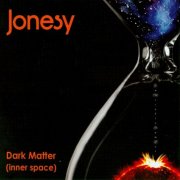 |
Dark Matter (Inner Space) (2011, recorded 19?-20?, 38.01) ***/½Parallel Universesa. The Void b. There's Someone in Here! Silently Screaming Coldblood a. To Sleep... Perchance to Dream? b. The Nightmare - Welcome to the Land of the Lizard Maybe We're All Madmen? Dark Matter The Bown Supremacy |
Current availability:
Mellotrons used:
Jonesy were put together by John (Evan-) Jones after he released a solo singer/songwriter-type album for German label BASF with keyboard player Jamie Kaleth. No Alternative is a little dated for '72, being a bluesy prog album, nearer to the 'proto-prog' of Gracious! or Cressida than the market leaders of the day. It's by no means a bad record, but very much of its time, failing to transcend the decades the way their best contemporaries have. Kaleth only plays pianos and Mellotron, so there's a good bit of it to be heard; all six tracks, in fact. Plenty of brass and strings; I'm told they had an M400, but I'm sure I can hear the MkII brass/strings mix. Overdubs? Anyway, Mellotronnic highlights include the occasional strings pitchbend/swells on Mind Of The Century and the string work on Pollution. Keep an ear out for Kaleth's 'choppy' chords, where he tries to play the thing more like a organ. Key-click warning, key-click warning... A non-album b-side, Every Day's The Same, is decent enough, if rather unspectacular, smothered in Mellotron flutes and strings.
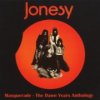 |
After some lineup changes, they quickly followed-up with Keeping Up..., veteran hornsman Alan Bown firmly ensconced as a full member. It's an immediate improvement on its predecessor, with considerably more adventurous material, although a vastly improved production may have helped. There's an excellent string arrangement alongside Mellotron strings and flutes on Masquerade, more of the same on Sunset And Evening Star and a killer string part on Questions And Answers. I keep finding myself thinking 'King Crimson' as I listen to this album; several tracks have some of that Islands weirdness, or Poseidon Mellotron-epic feel to them, particularly the imaginatively-titled Song. Children finishes the album off in grand style, with more Crimsonisms and Mellotron brass alongside the real thing. Growing was more of a group-written album, which shows in its relative lack of direction, often regarded as the weakest of the three. More Crimsonesque stuff, particularly the jazzy dissonance on their, er, 'theme song', Jonesy. Not that much of Kaleth's Mellotron this time round, just regular strings on Can You Get That Together and the rarely-heard Mellotron Hammond on Know Who Your Friends Are, but all the rest of the strings seem to be real ones, ditto the brass.
A fourth album was recorded in 1974, but the tapes were stolen and never recovered. When an Italian fan got in contact with Evan-Jones recently, after hearing a copy dubbed from a surviving cassette, he offered to release it. Sudden Prayers Make God Jump... (now, is that a modern Crimson title or what?) saw the light of day in 2003; although Kaleth had left by then, Ken Elliott of Second Hand/Seventh Wave fame stepped in on Mellotron duties. The album's an immediate improvement on Growing, making it even more tragic that the masters were lost, although the mastering job that's been done here is excellent, all things considered. Elliott gets plenty of that Mellotron in, with major use in lengthy opener Dark Room and some upfront flutes and strings in Bad Dreams, amongst others.
It's difficult to tell exactly what's going on with 2011's Dark Matter (Inner Space): in some ways, it seems to be an album of new recordings, although the band's site uses the phrase 'includes recordings spanning 3 decades, all previously un-released'. New album or not new album? Either way, it's a most fragmented and eccentric release, seemingly a concept album that's at least as much 'concept' as 'album'. Better tracks include part b of Coldblood, The Nightmare - Welcome To The Land Of The Lizard, but this is clearly meant to be listened to as a whole. Kaleth on (real?) Mellotron, with flutes on part b of opener Parallel Universes, There's Someone In Here!, with little string swells later in the track and occasional choirs and pitchbent strings on 'bonus track' The Bown Supremacy (ho ho), although I'm not at all sure how genuine the latter might be.
Incidentally, Esoteric's Masquerade: the Dawn Years Anthology is now the easiest way to get the original band's three albums. Avoid the shockingly-mastered, unofficial Australian 'Progressive Line' issues at all costs.
See: Alan Bown | John Jones